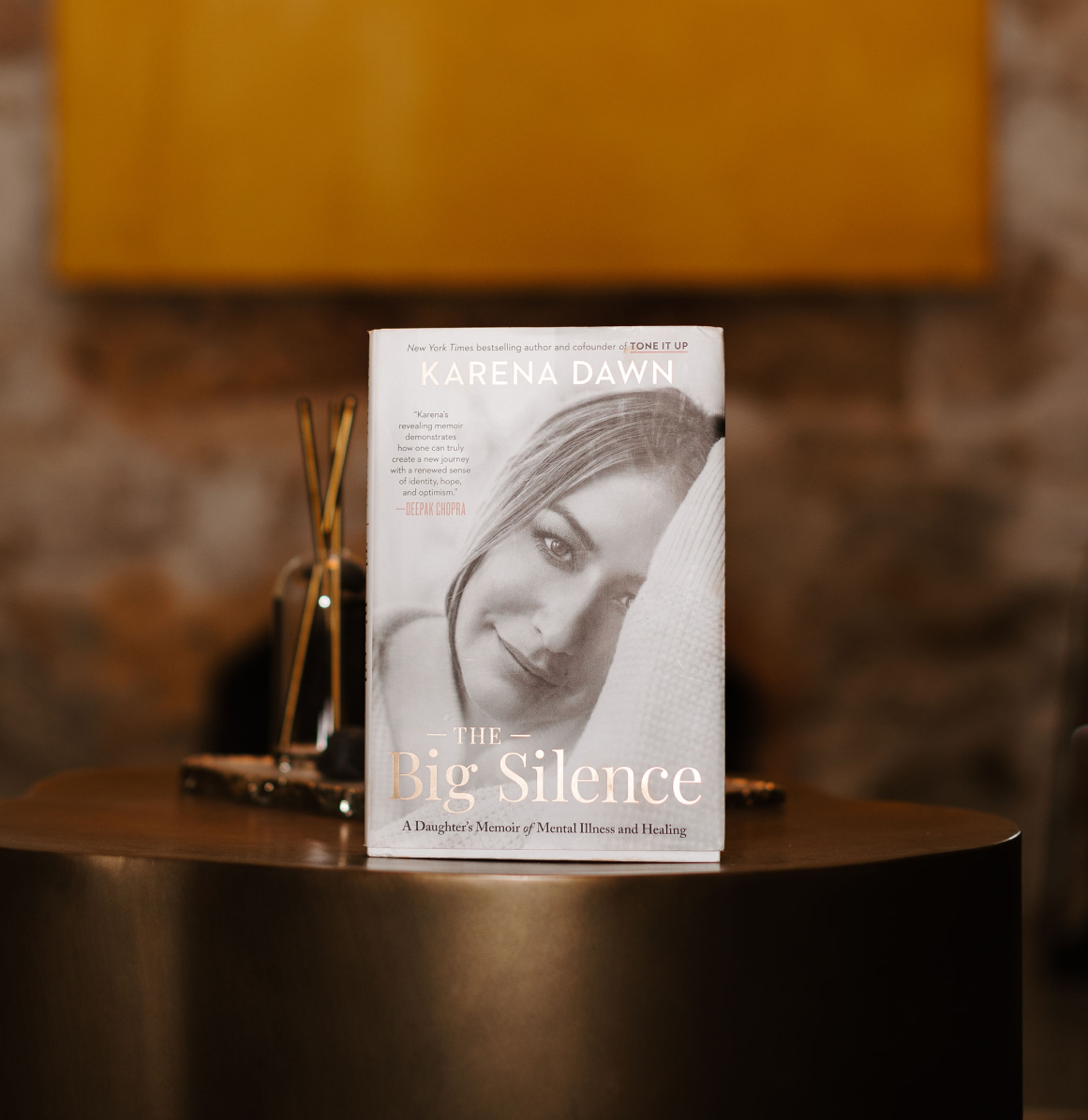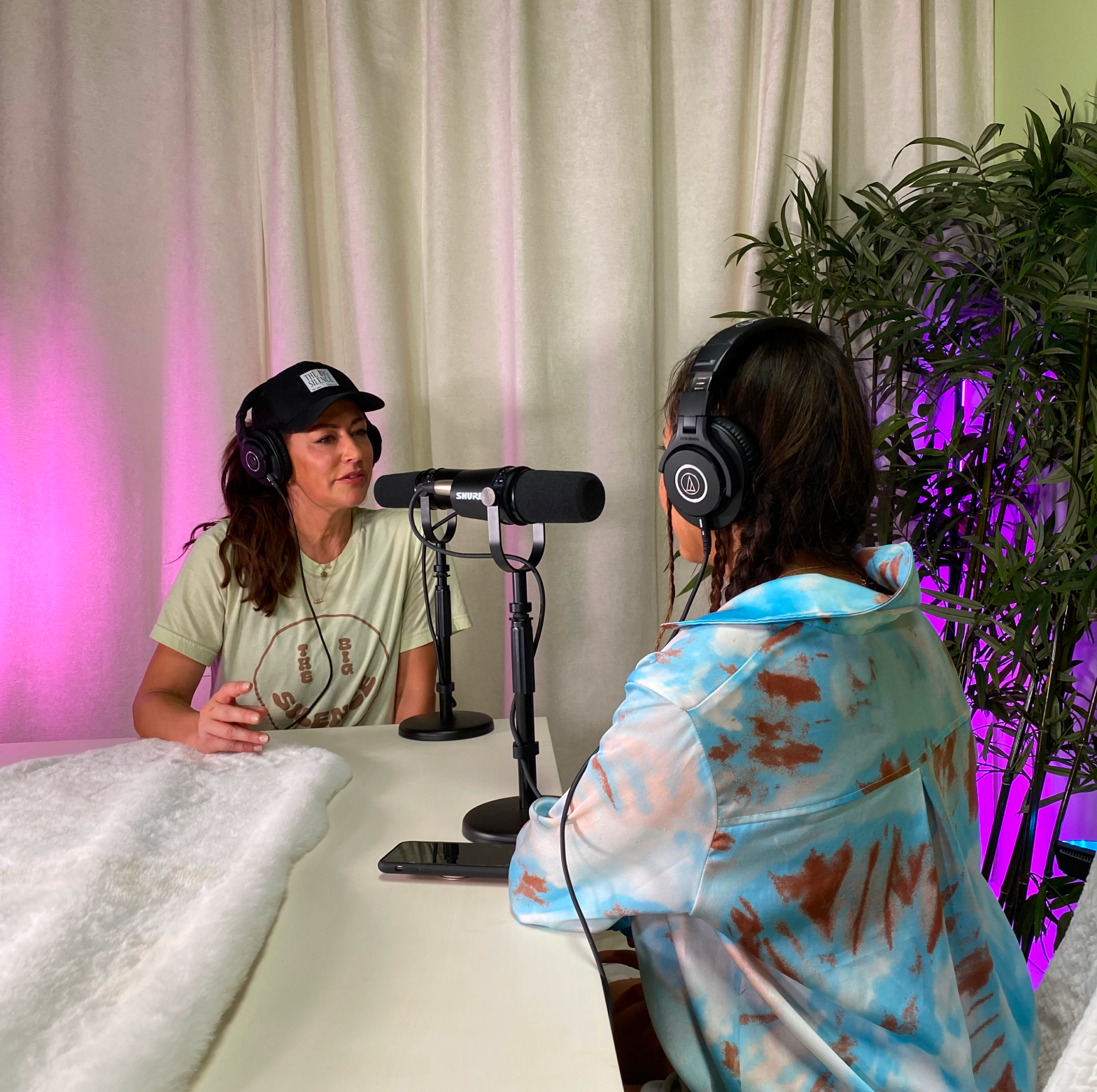
Setting Healthy Boundaries: A Guide to Prioritizing Your Well-Being
This Big Feels Monday focuses on a topic that has a major impact on your joy of living and your mental health: how to set healthy boundaries and prioritize your well-being. Join Karena and James as they guide you through the process of setting healthy boundaries, empowering you to prioritize your well-being and create a more balanced and fulfilling life.
In this helpful video, Karena and James explore what boundaries are, why they matter, and how to recognize when you need to set one. This video is particularly beneficial for individuals who struggle with people-pleasing, experience burnout, or find it challenging to say no. It also serves as a valuable resource for anyone looking to improve their communication skills and strengthen their relationships.
Key takeaways from this video include:
- Understanding the difference between healthy and unhealthy boundaries
- Recognizing the signs that you may need to set boundaries
- Effective strategies for communicating your boundaries assertively and respectfully
- Overcoming the fear and guilt associated with setting boundaries
- Tips for maintaining healthy boundaries in various relationships
The Power of Healthy Personal Boundaries
Boundary Boss Terri Cole has been a guest on The Big Silence podcast a few times. Terri shares with Karena that her own experiences of being a boundary disaster led her to have all kinds of problems in her relationships and personal life. According to Terri, not setting boundaries can lead you to feel used, abused, burned out, not seen, exhausted and like you are always giving but never receiving.Terri explains that so many of us were "raised and praised to be self-abandoning and co-dependent....We were raised that being self-sacrificing was being nice."
Terri Cole's First Step to Setting Healthy Boundaries:
Setting healthy personal boundaries is essential for maintaining mental health and wellness. Boundaries are the limits we set for ourselves in our relationships and interactions with others. They help us protect our emotional and physical well-being, ensuring that we maintain a sense of identity and personal space. It does not mean that you are unkind or unloving. To be in a reciprocal relationship, taking care of yourself and maintaining your energy and interests is healthy and essential.
Here, we’ll explore examples of healthy boundaries, actions you can take to set them, the benefits to mental health, and how to communicate your boundaries effectively.
What are Examples of Healthy Personal Boundaries?
Emotional Boundaries
- Example: Not taking responsibility for others' feelings or reactions.
- Action: Practice saying no without feeling guilty. Understand that it's okay to prioritize your own emotional needs.
Time Boundaries
- Example: Allocating specific times for work, leisure, and rest.
- Action: Create a schedule that includes time for self-care and stick to it. Inform others of your availability and unavailability clearly.
Physical Boundaries
- Example: Maintaining personal space and physical privacy.
- Action: Communicate your comfort levels regarding physical touch and personal space to others.
Intellectual Boundaries
- Example: Respecting differing opinions and beliefs.
- Action: Engage in respectful debates and avoid forcing your views on others.
Material Boundaries
- Example: Deciding what you’re comfortable sharing with others.
- Action: Be clear about what you can and cannot lend or give away.
What are the Benefits of Healthy Boundaries on My Mental Health and Wellness?
- Reduced Stress and Anxiety: Setting boundaries helps prevent burnout and reduces the pressure of meeting everyone else’s expectations.
- Improved Self-Esteem: Respecting your own needs boosts your self-worth and confidence.
- Healthier Relationships: Clear boundaries lead to more respectful and balanced relationships, reducing resentment and conflict.
- Enhanced Focus and Productivity: By setting time boundaries, you can focus better on tasks and improve your efficiency.
- Emotional Stability: Maintaining emotional boundaries helps you stay grounded and less affected by others' emotional turbulence.
If you find yourself saying "yes" when you mean "no" you might be performing people-pleasing due to habits learned from past unhealthy relationships. "Setting boundaries can help you to have healthier relationships," says Dr. Morgan Anderson. "A relationship can't give you anything that you can't give yourself."
What Actions Can I Take to Set Healthy Boundaries?
Setting healthy personal boundaries is a powerful act of self-care that promotes mental health and overall well-being. By reflecting on your needs, communicating clearly, and consistently enforcing your boundaries, you can create a balanced and fulfilling life.
Here are five actions you can take to begin to set healthy boundaries:
- Self-Reflection: Understand your needs and limits. Reflect on past experiences where your boundaries were crossed and identify what you would do differently.
- Clear Communication: Use “I” statements to express your needs. For example, “I need some time alone after work to recharge.”
- Consistent Enforcement: Stick to your boundaries consistently. If someone crosses a boundary, address it immediately.
- Seek Support: Talk to a therapist or join a support group to gain insights and strategies for setting boundaries.
- Practice Self-Care: Regularly engage in activities that nurture your mind and body. This reinforces the importance of your boundaries to yourself and others.
If Someone Crosses My Boundaries, How do I Address it?
In a nurturing and reciprocal relationship, we always want to be respectful of each others' needs. If you find yourself in a friendship or relationship where someone makes you feel inferior because you have set a boundary, then it might be wise to consider whether there are other warning signs in the relationship. A controlling personality or pathological partner might try to make you feel anxious or guilty for setting a boundary.
Dr. Nadine Macaluso, who was married to the Wolf of Wall Street, shares signs that are red flags of a pathological partner:
When telling others about your boundaries, it’s crucial to be clear, concise, and assertive. Here are some tips:
- Be Direct: Clearly state what your boundary is without beating around the bush.
- Use “I” Statements: This focuses on your needs and feelings rather than blaming the other person.
- Stay Calm: Maintain a calm and composed demeanor to avoid escalating the situation.
- Be Respectful: Respect others’ boundaries in return and acknowledge their feelings.
- Practice Patience: Understand that it might take time for others to adjust to your boundaries. Be patient but firm.
Remember, your boundaries are a reflection of your self-respect and self-love, and honoring them helps you cultivate healthier relationships and a more peaceful mind.
BIG FEELS FEEDBACK
How are you really feeling? We'd love to hear about your week, or share your favorite tools for the week in the comments!
|
The Big Silence Foundation, Inc is a U.S. tax-exempt 501(c)(3) organization dedicated to changing the culture of mental health. Consistent with IRS guidelines, all gifts are tax-deductible to the extent allowable by law. Donate to bring change with us!
|
Start a conversation in your The Big Silence apparel.
The information provided is for educational purposes only, and does not substitute for professional medical advice. Users are advised to consult a medical professional or healthcare provider if they're seeking medical advice, diagnoses, or treatment.
**Please note that if your thoughts start becoming hopeless or suicidal, contact emergency at 988 or 911 andcrisis services immediately. You can find more resourceshere. Text HELLO to 741741 to be connected with a trained crisis counselor.











1 comment
Contact Leonardo today for any infidelity Issues.
He helped me to get into my husband’s phone remotely and he helped me to gain justice to my husband’s infidelity activities. He is professional and nice hacker to work with …Contact him on his email for hire or to know more about his services
Leonardomitnickhacking@ gmail.com